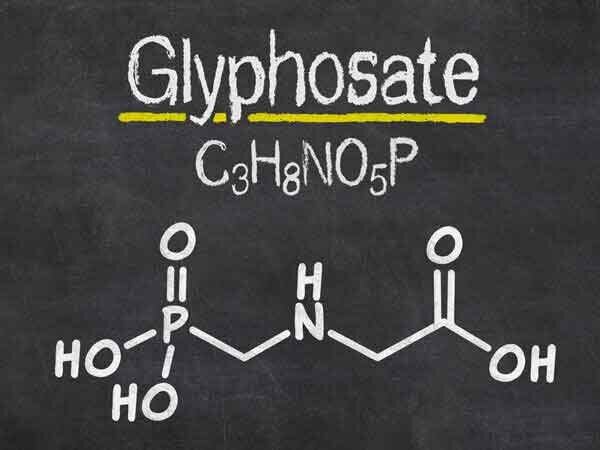GLYPHOSATE IN DRINKING WATER
GLYPHOSATE IN DRINKING WATER
Glyphosate is one of the best-selling pesticides in the world and is highly controversial. In Germany, it is used on approximately 40 percent of the fields to destroy weeds or to accelerate the ripening of grain. Unfortunately, glyphosate-containing plant protection products destroy almost all wild-growing plants in fields. This deprives insects and vertebrates of their livelihoods, which poses a threat to biodiversity.
Glyphosate is highly toxic to water bodies.
Through rain, it gets into streams, rivers and groundwater, where it becomes a problem for aquatic life. According to the approval report of the Federal Office of Consumer Protection and Food Safety, glyphosate must not get into the water at all. Unfortunately, it is not used professionally and too frequently in Germany and can now even be detected in municipal sewage treatment plants.
Glyphosate in groundwater
It then comes into contact with us humans via the food chain and the groundwater. The German Association for the Protection of the Environment and Nature sees the occurrence of glyphosate in urine samples from people in major cities as worrying and further states that glyphosate is suspected of damaging embryos.
Glyphosate classified as carcinogenic
The International Agency for Research on Cancer (IARC), an institution of the World Health Organization (WHO), already classified glyphosate in Group 2A in its assessment of March 2015. This category includes substances that definitely cause cancer in animals and most likely cause cancer in humans. It is strange that WHO experts are now classifying glyphosate as probably not carcinogenic. In the recently published study to which the WHO refers, the Reuters agency found 10 significant changes to the original draft during its research. Connections between glyphosate and tumors were either removed or replaced with neutral or positive evaluations.
Can I filter glyphosate out of my drinking water with a filter from LEOGANT
Probably yes. Glyphosate (C2H8NO5P) is a chemical compound belonging to the phosphonate group. Phosphonates are salts and organic compounds of phosphonic acid. The starting point for assessing whether activated carbon can filter this substance is that glyphosate is partly an organic substance. The adsorption capacity of activated carbon with regard to dissolved substances is essentially focused on organic substances (C-H compounds). For organic substances, removal can therefore be regarded as certain, provided that the surface area and contact time are sufficiently large. The special activated carbon filters that we use at Leogant are characterized by a constant pore fineness and a high adsorption surface area. This is ensured by the special manufacturing process. Although there is no individual study on the retention of glyphosate with our cartridges, reference reports can be used. Both the study on the adsorption performance of hydrocarbons and chlorine by the Magdeburg University of Applied Sciences and the study on the adsorption performance of hydrocarbons and pesticides by the Magdeburg University of Applied Sciences confirm a constant retention of over 99% over the entire filter capacity.
We conduct our own water analyses every year to check the effectiveness of the filter cartridges. So far, we have not been able to find any glyphosate residues in the water using standard water analyses at accredited laboratories, so it has not been possible for us to independently investigate the effectiveness of our filter cartridges in this regard. Unfortunately, there are still no laboratory analyses from the manufacturers on glyphosate. We will continue to carry out analyses and share the results on our website.
Avoid glyphosate
We recommend consistently switching to food from organic farming. If you buy and eat organic, you are not only protecting the environment, but also your own health enormously. We also advise you not to use any herbicides or pesticides in your own garden.
About the author:
Thomas Hartwig is a certified nutritional advisor and founder of LEOGANT. He has been working intensively with the element of water for many years. He is an esteemed keynote speaker and guest on podcasts, where he shares his knowledge and experience. In his work, he combines insights from natural science and medicine with philosophical approaches to contribute to a holistic water awareness.
References
https://www.umweltbundesamt.de/themen/glyphosat-schritt-zurueck-beim-schutz-der
https://www.umweltbundesamt.de/themen/chemikalien/pflanzenschutzmittel/glyphosat
https://www.apotheken-umschau.de/Ernaehrung/Ist-Glyphosat-wirklich-so-gefaehrlich-509487.html
https://www.reuters.com/investigates/special-report/who-iarc-glyphosate/
https://www.bund.net/umweltgifte/glyphosat/glyphosat-im-urin/
http://monographs.iarc.fr/ENG/Monographs/vol112/mono112.pdf


